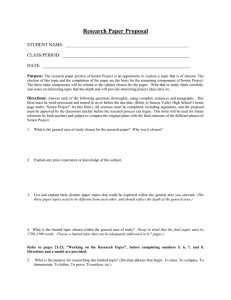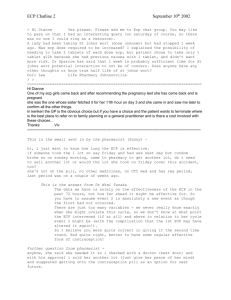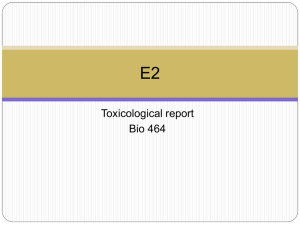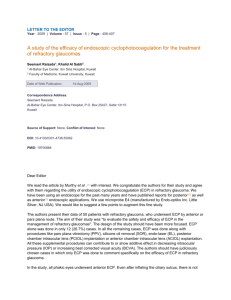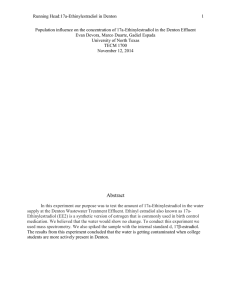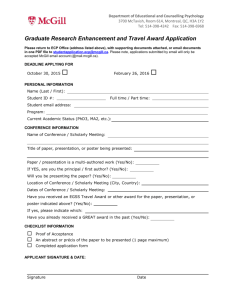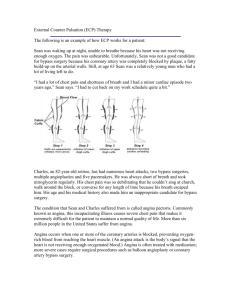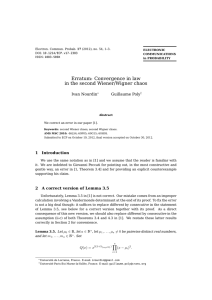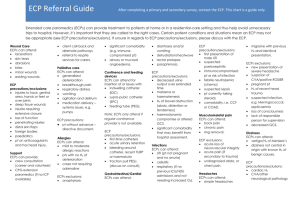Emergency Care Practitioners - Ipswich and East Suffolk CCG
advertisement
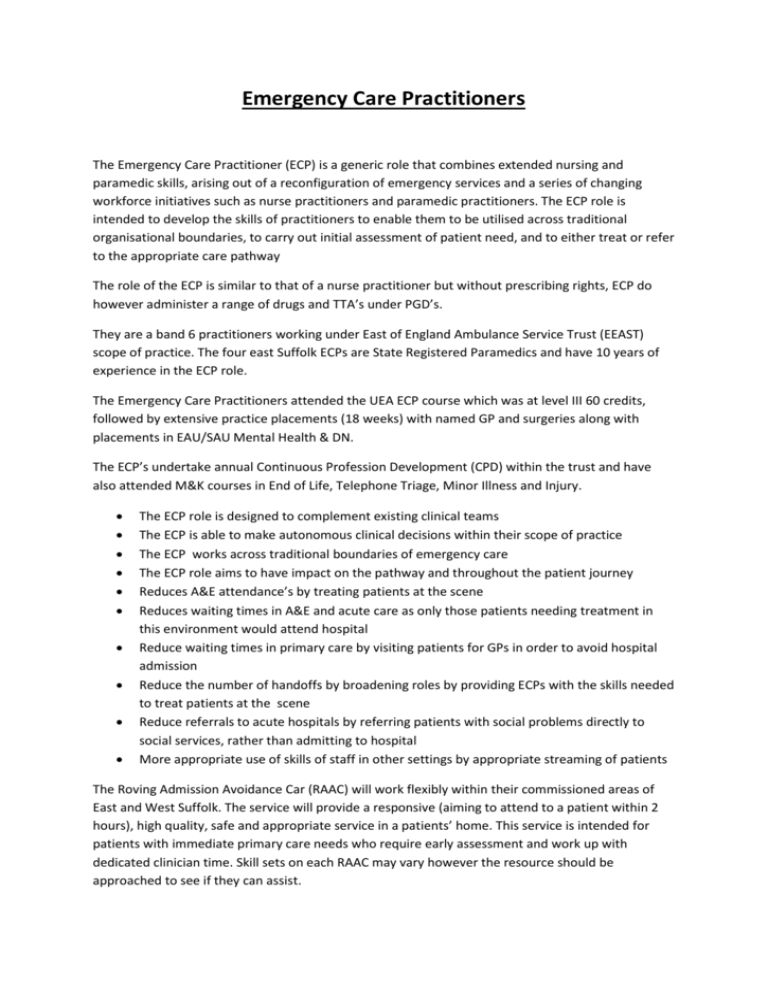
Emergency Care Practitioners The Emergency Care Practitioner (ECP) is a generic role that combines extended nursing and paramedic skills, arising out of a reconfiguration of emergency services and a series of changing workforce initiatives such as nurse practitioners and paramedic practitioners. The ECP role is intended to develop the skills of practitioners to enable them to be utilised across traditional organisational boundaries, to carry out initial assessment of patient need, and to either treat or refer to the appropriate care pathway The role of the ECP is similar to that of a nurse practitioner but without prescribing rights, ECP do however administer a range of drugs and TTA’s under PGD’s. They are a band 6 practitioners working under East of England Ambulance Service Trust (EEAST) scope of practice. The four east Suffolk ECPs are State Registered Paramedics and have 10 years of experience in the ECP role. The Emergency Care Practitioners attended the UEA ECP course which was at level III 60 credits, followed by extensive practice placements (18 weeks) with named GP and surgeries along with placements in EAU/SAU Mental Health & DN. The ECP’s undertake annual Continuous Profession Development (CPD) within the trust and have also attended M&K courses in End of Life, Telephone Triage, Minor Illness and Injury. The ECP role is designed to complement existing clinical teams The ECP is able to make autonomous clinical decisions within their scope of practice The ECP works across traditional boundaries of emergency care The ECP role aims to have impact on the pathway and throughout the patient journey Reduces A&E attendance’s by treating patients at the scene Reduces waiting times in A&E and acute care as only those patients needing treatment in this environment would attend hospital Reduce waiting times in primary care by visiting patients for GPs in order to avoid hospital admission Reduce the number of handoffs by broadening roles by providing ECPs with the skills needed to treat patients at the scene Reduce referrals to acute hospitals by referring patients with social problems directly to social services, rather than admitting to hospital More appropriate use of skills of staff in other settings by appropriate streaming of patients The Roving Admission Avoidance Car (RAAC) will work flexibly within their commissioned areas of East and West Suffolk. The service will provide a responsive (aiming to attend to a patient within 2 hours), high quality, safe and appropriate service in a patients’ home. This service is intended for patients with immediate primary care needs who require early assessment and work up with dedicated clinician time. Skill sets on each RAAC may vary however the resource should be approached to see if they can assist. The ECP drug PGD documents are too large to embed in this document and are currently being reviewed by the trust Pharmacist- I have listed the drugs below which provide an overview of the medication administered and supplied by the ECP’s. ECP Drug List Administration and Supply of Aciclovir tablets Administration and Supply of Amoxicillin capsules Administration and Supply of Chloramphenicol Eye Ointment 1% Administration and Supply of Chlorphenamine Administration and Supply of Co-Amoxiclav capsules/suspension Administration and Supply of Co-Codamol 30/500 Administration and Supply of Codeine Phosphate Administration and Supply of Diazepam Administration and Supply of Diclofenac or Naproxen Administration and Supply of Doxycycline Administration and Supply of Erythromicin Administration and Supply of Flucloxacillin Administration and Supply of Gaviscon®/ Gaviscon Advance®/Peptac® Administration and Supply of Glycerin Suppositories Administration and Supply of Hyoscine Butylbromide Administration and Supply of Ibuprofen Administration and Supply of Lactulose Administration and Supply of Lansoprazole Administration and Supply of Levonelle Administration of Lidocaine (Lignocaine) 1% Plain Administration and Supply of Loperamide Administration and Supply of Metoclopramide Administration and Supply of Metronidazole Administration and Supply of Nitrofurantoin Administration and Supply of Paracetamol Administration and Supply of Prednisolone Administration and Supply of Prochlorperazine Administration and Supply of Rizatriptan or Zolmitripan Administration and Supply of Salbutamol Inhaler Administration and Supply of Trimethoprim
